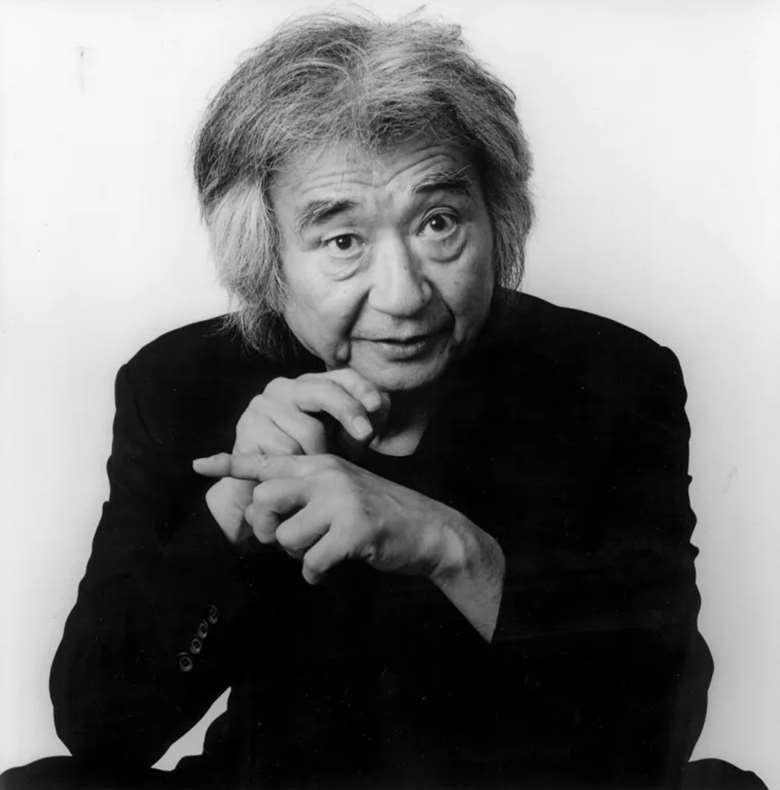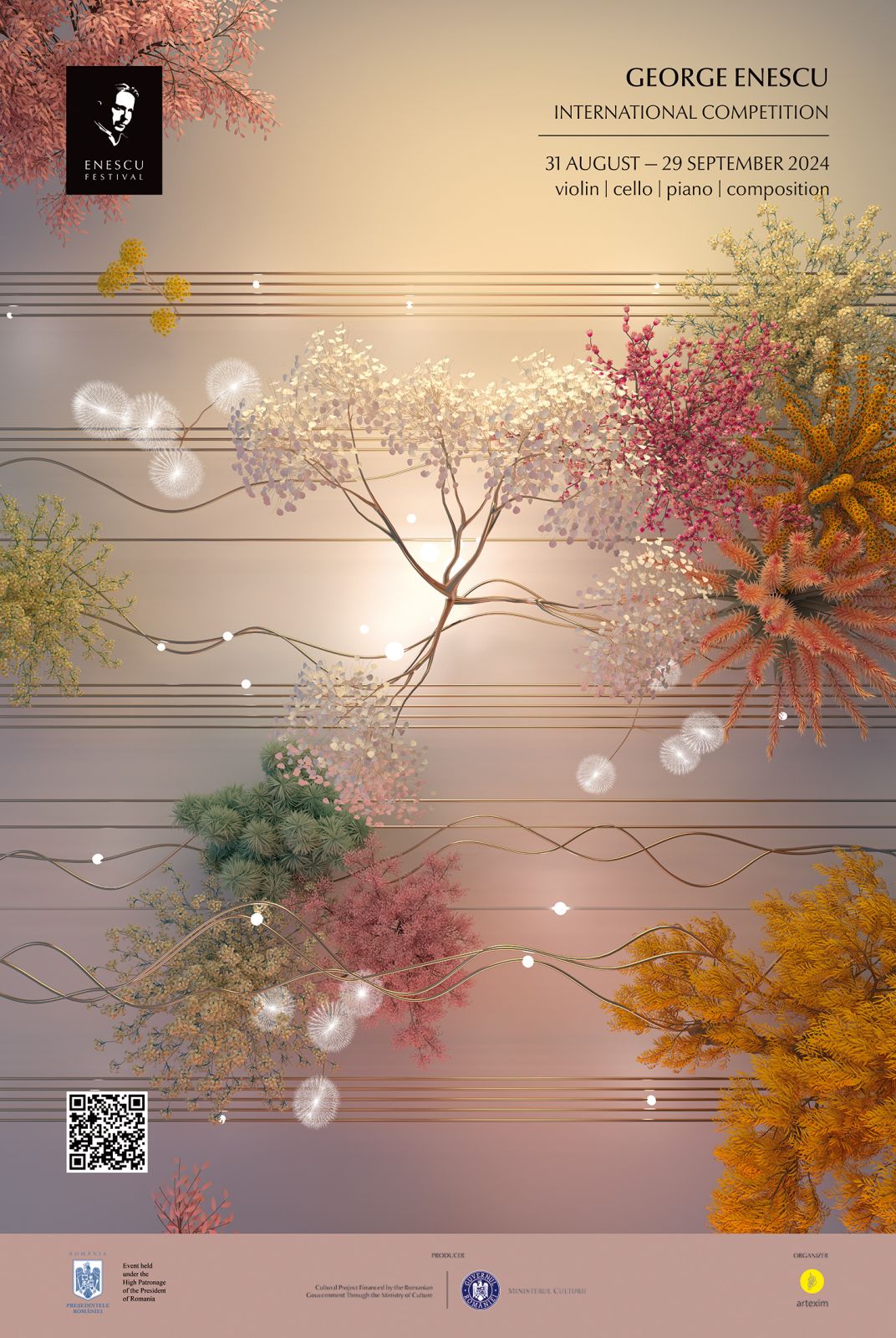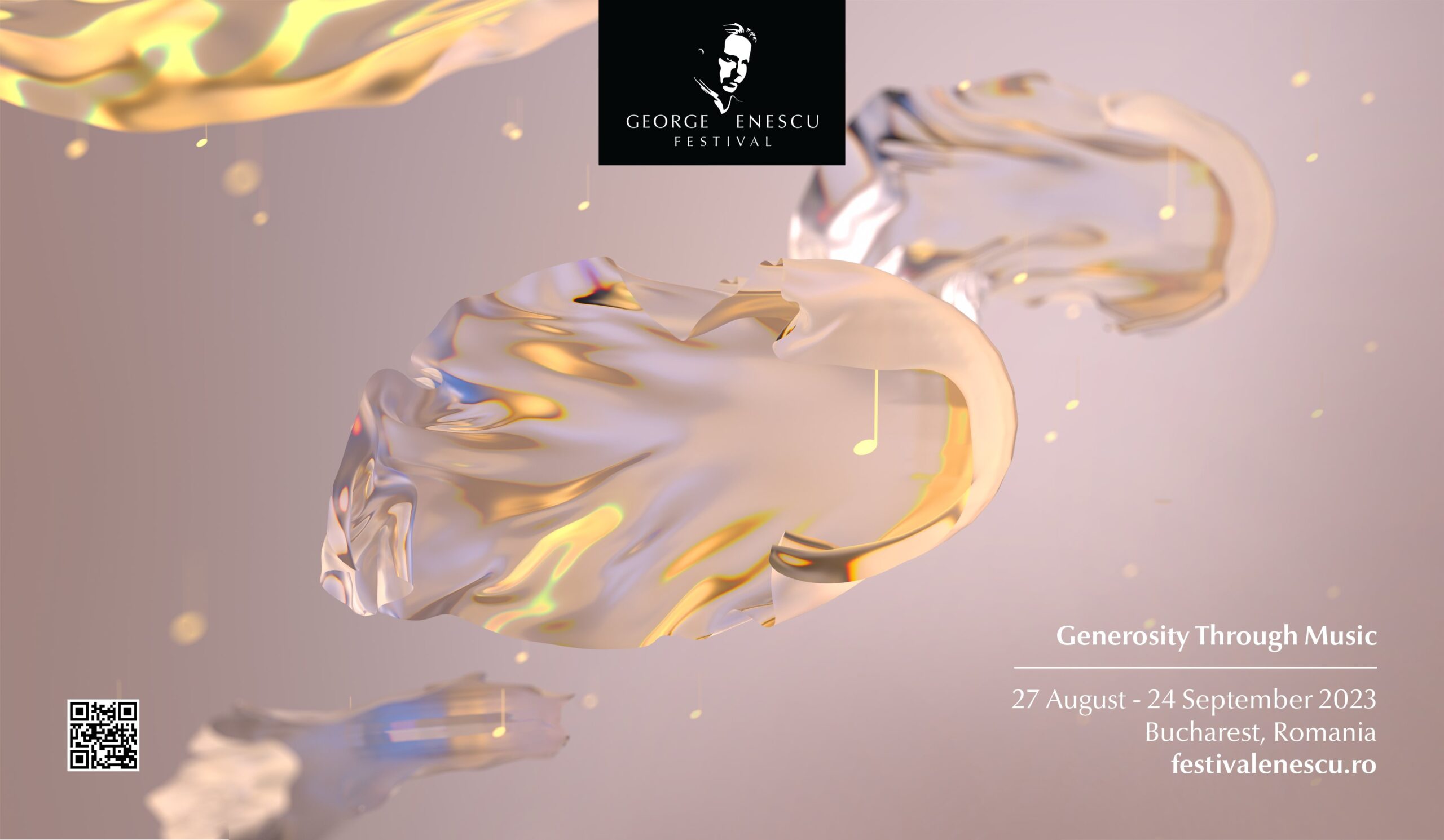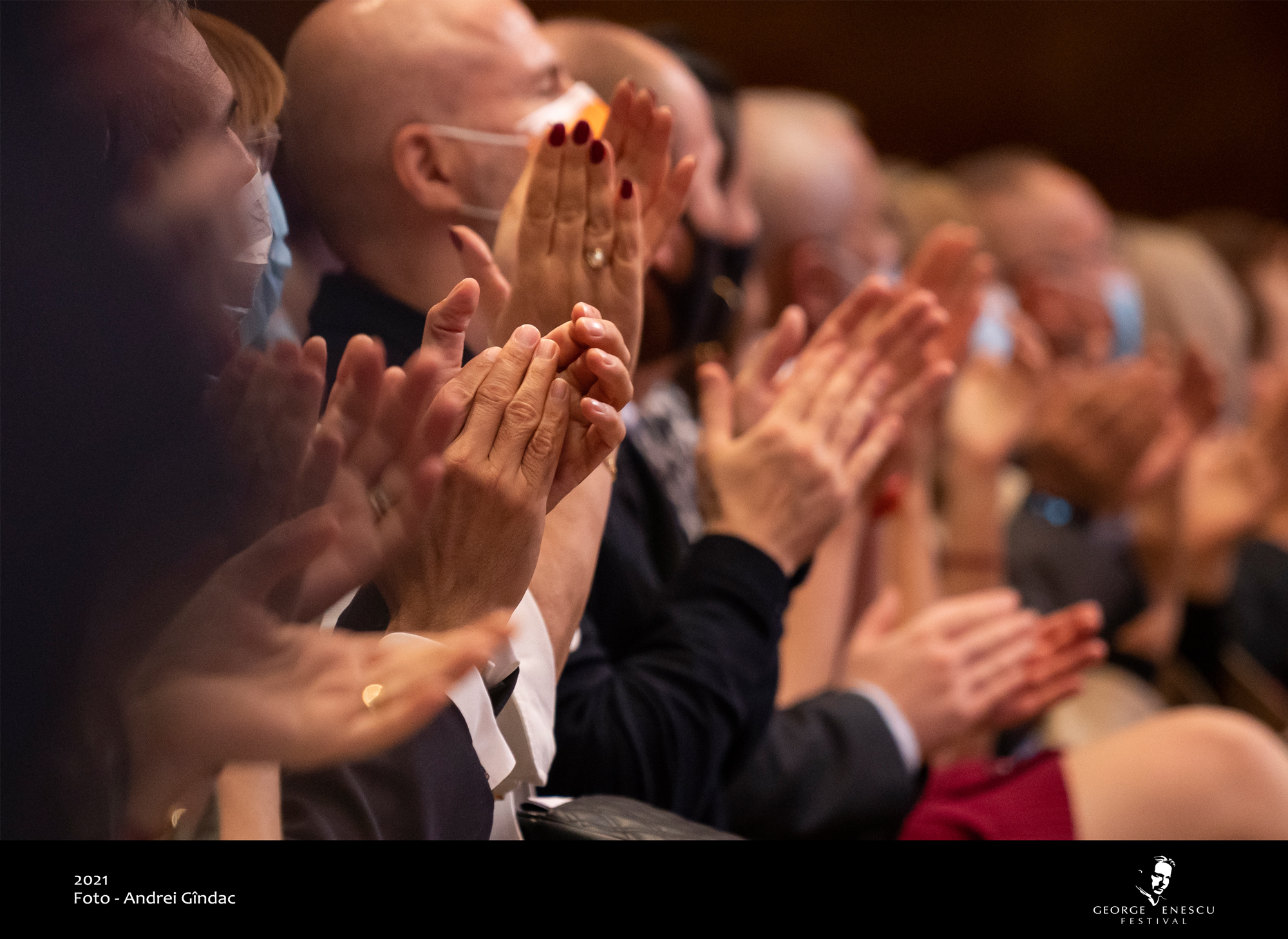Text by Sabina Ulubeanu
A small miracle occurs within George Enescu Festival. Giants of world composition sit just a few meters away and speak casually of their creative processes, trained at the highest level, translating for the audience the most complex and refined thoughts about music, generously revealing their process of creation and discussing with anyone, from mere music lovers to students of the National University of Music of Bucharest to established professionals.
All of this can be witnessed in the Composers’ Forum and in the concerts in the Music of the 21st Century series, a fabulous gathering of music celebrities, creators and performers who inspire with their courage, perfection, and joy of discovery.
Francesco Filidei, with his black T-shirt and casually ripped jeans, starts slowly, academically, explains the passion for different sounds he has had ever since he was a student, strips music of its bells and whistles and reveals its essence: an arching in time, a fantastic play with form, and manipulates us emotionally towards a sharp perception of each timbre. Then he blows us away with a story and a statement. The image of his grandmother’s coffin and his mother tapping it with her hand. Implacable. A rough moment. In his eyes you can see the impressed kid, barely eight years old, lost in sound and heavy gestures. Fast forward, this gesture follows him throughout his existence and strongly transfigures him in his entire creation, with an overwhelming climax in the opera Giordano Bruno. Then he relaxes us and melts our hearts, saying his favourite composer is Puccini…
Raphaël Cendo is a strong, visceral presence. Imposing in an almost physical manner, due to an amazing telluric energy. He speaks to us of the principle of saturation in music. Yes, it happens just like when you saturate a photo. Everything is exacerbated in an expressionist manner, from his instrumental effects to the fragmentation of his radicalising discourse to 257 microfragments. Cold, conceptual. But 20 minutes later, you realize you’re looking at a true sentimental. He is the first composer I have heard mentioning his children twice. So I ask him straightforwardly how he handles composing given that he is a father. He answers like any female artist/mother: I am a miserable father and I work a lot, or I am a terrible composer and spend time with them, play with them, I love playing with my children, in fact I am a child myself…
The concert on the following day was given by Ensemble Linea, masterfully conducted by Jean‑Philippe Wurtz. The programme was bound to be extremely captivating. The instrumentalists decided to reverse the initial order, which turned out to be a wonderful idea. Laurențiu Ganea’s composition seemed like a foreign body in the frenzy of the encounter with these magicians of contemporary music. Backward, with an uncertain form, of doubtful taste, quite simply a sad moment in the overall economy of the concert, despite the dedication of the instrumentalists and the soloist, pianist Daumants Liepiņš.
Fortunately, Alex Mincek’s work followed, his Chamber Concert written as a tribute to G. Ligeti. The perfect form, the effective orchestration, the contrast play (one of his characteristics, particularly at an ideational level, we’re not talking about intensities, but contrasting principles of composition), and a judicious manner of juggling with time delighted the audience, who rewarded the composer present in the concert hall with plenty of applause.
In the second part, we listened to F. Filidei’s Finito Ogni Gesto and R. Cendo’s Corps for piano and ensemble. Two composers, former and current colleagues, two completely different worlds of sounds, united by a source of courage and assuming one’s own ideas to radicalisation. In Filidei’s music, in his desire to strip music of traditional sounds, a deeper, grander sound is accomplished fragment by fragment, a comprehensive line like the air in the entrails of the organ he loves so much. His orchestration is a handbook for any aspiring composer, economical and luxuriant at the same time, a unique combination that captivates irreversibly.
Cendo’s radicalisation was revealed fantastically by the pianist Wilhem Latchoumia, an overwhelming appearance, protecting his hands so as not to hurt himself during the performance of this very difficult score, full of glissandi on the keys and strings, using batons and other materials, in a permanent dialogue with the conductor and the members of the ensemble. The pleasure that these musicians feel when they play such a seemingly intellectualising music, yet after all, deeply visceral just like its author, springing from an excess of feeling, is unimaginable.
The afternoon of 8 September was profoundly inspiring. For the audience, for the professionals, for the young composers and performers in the concert hall. We are lucky to have experienced it.
Sabina Ulubeanu,
Composer
Translation provided by Biroul de Traduceri Champollion







